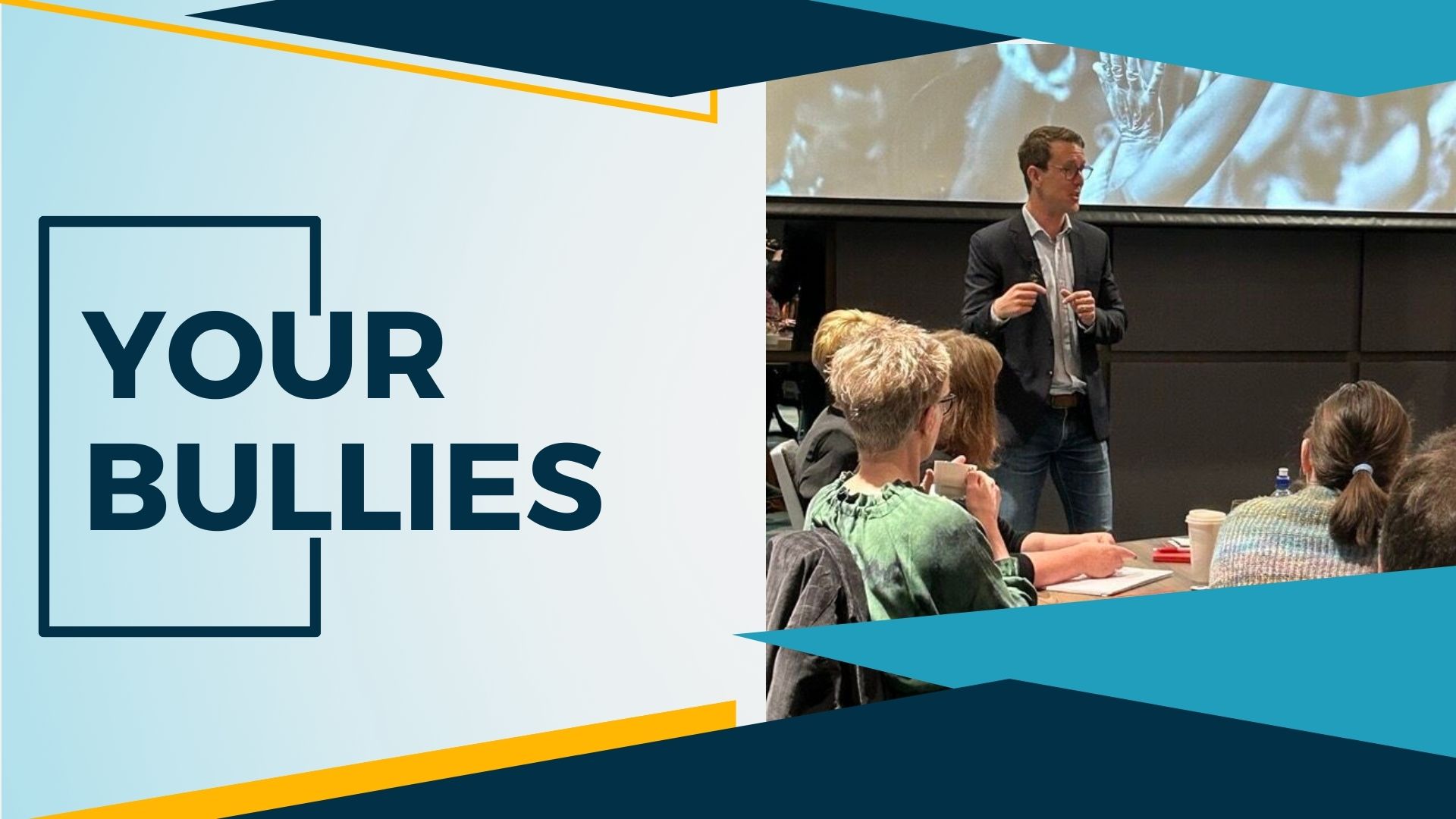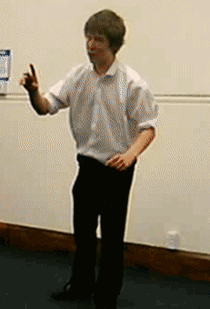Your bullies

One of the challenges we face as facilitative leaders is creating trust.
Something weird happens whenever we step into a position of leadership. People start to treat us differently. A gap opens up between who we really are... and who people assume us to be.
One of the most effective ways to build trust is by sharing openly and honestly about what makes us tick. But what do we share? And how far do we go? We've all seen people take this advice to be vulnerable too far. Your colleagues are not your therapists!
We need to embrace those parts of ourselves that make us stand out. Ironically, those are often the hardest parts for us to identify in ourselves. But I've figured out a potential shortcut.
The thing that you were bullied for at school... what if that's actually your superpower? 🔥
Being bullied is a pretty universal human experience. We all have a part of us that others perceive as humiliating/weird/shameful/odd/nerdy or whatever.
For me, I got bullied at school for:
* being intellectual ("Scholar!")
* enjoying singing ("Choir fag!")
* being late to puberty ("Highballs!")
* being quiet and thoughtful ("Boring!")
* having acne ("Pizza face!")
* doing drama ("Drama fag!")
I lied to my parents about this for years. "No Mum, it's all good, I'm not getting bullied." Complete denial about being a very uncool kid!
My dad retired 3 months ago. He's trawling through old photos at the moment. The last email I received was entitled: 📻"Look what I found!!"
Uh-oh... another embarrassing video. This one is of me performing a scene from King Lear and another as a dim-witted Irish man.

Once I got over the heinous haircut (seriously... did I cut that myself!?) it's oddly satisfying to see 17 year-old me in the zone.
Bring your shame out of the shadows
Seeing the video made me realise that the things that I got bullied for at school are what fuel my vocation today.
I use those speech and drama skills everyday. Teaching subject matter experts how to facilitate impactful presentations and workshops brings me tonnes of joy. (It far outweighs the bullying. So take that, world!)
It's taken me 35 years to appreciate the parts of myself that I used to get bullied for. And I'm still learning to bring that shame out of the shadows so it can spotlight the uniqueness in others.
How about you? How does your school experience continue to shape your ability to lead by facilitation today?